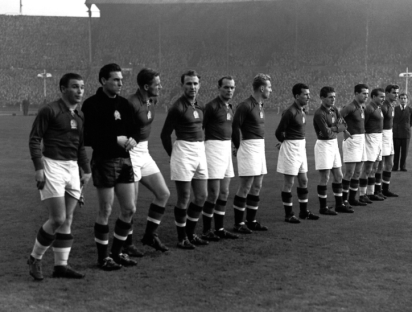So we’re set for 23 June. England’s Eurosceptics now have for months to pick apart what David Cameron claims was a successful re-negotiation of Britain’s special status within the European Union.
Getting over with it as quickly as possible is probably the best bet. No one wanted an entire year of aggressive campaigning bound to become hateful over time.
The vote will take place right in the middle of Euro2016. Which raises, of course, various questions of timing: is it wise to schedule a referendum of this importance at a moment when the attention of a large part of the public will be diverted to the state of Rooney’s knee? Does it make sense to mix the expected outpour of identity discourse with the surge of football nationalism that comes with every big international tournament?
English history would say it’s rather risky for the man in office. On 18 June 1970 Prime Minister Harold Wilson lost the general elections against all odds. The only possible explanation for this surprise defeat was the surprise defeat of the English team at the World Cup that had occurred only four days earlier, in a quarter final that was played under the scorching Mexico mid-day sun in order to allow Europeans to watch it in early evening. As the reigning world champions, England had been favourites against West Germany, but lost 2-3 in a dramatic extra time dénouement after having led 2-0. Could it be that Thursday’s voters were Sunday’s depressed football fans?
Now that UEFA has in its wisdom blown up the European Championship to 24 participants it is not very likely that English voters will already be in a depressed mood after the first round. Chances are England will have sailed through their three matches against Russia, Slovakia and … Wales (the latter reminding us that the UK is represented at Euro2016 by three different nations, with Northern Ireland playing Ukraine, Germany and Poland, while the Scottish Europhiles are watching from home, having been eliminated by the very same Germans and Poles).
But even if England is in buoyant mood during the Euro, would that mean that nationalist fervour around what is likely to be the youngest team in the tournament would reinforce the ‘Leavers’? Or would the joyful noise from the continent make everybody on the island feel more ‘European’ at the moment of the vote?
And, to look at things the other way round, what would be the impact of a clear British ‘Leave’ vote on the remainder of the tournament? Would England’s quarter final be overshadowed by an emergency summit in Brussels?
The favourite scenario of all Europhobic Englanders would be the Danish one. In 1992 Denmark voted a resounding ‘NO’ against the Maastricht Treaty on 2 June, before winning, only three weeks later, a European Championship they had not even qualified for in the first place.
But, who knows, perhaps the Eurosceptics are heading for their worst-case scenario: the UK chooses to remain in the EU and the Three Lions play a smashing tournament from beginning to end, meeting France in the final in Saint-Denis, winning the Euro in a breath-taking penalty shootout and, just like in Wembley on 17 November, singing the Marseillaise again together with their rivals. The ultimate nightmare!




